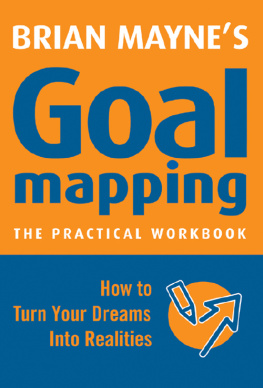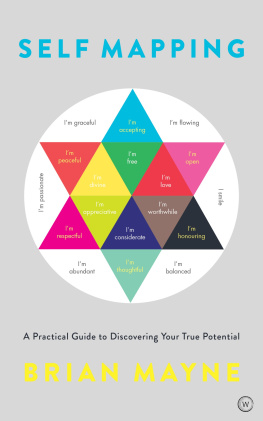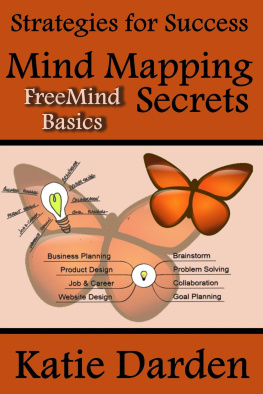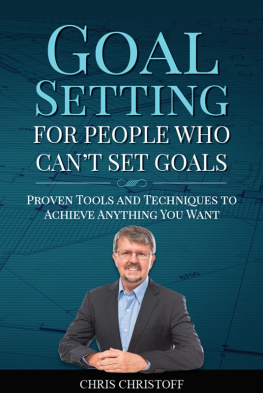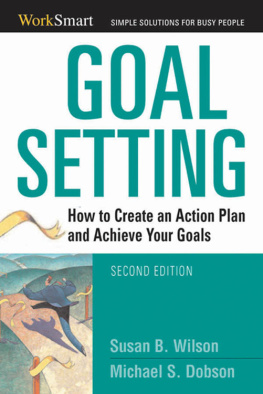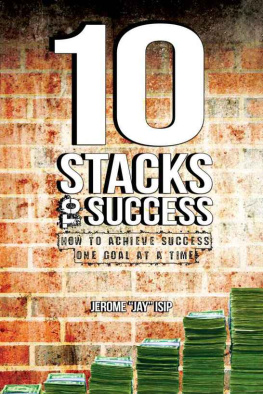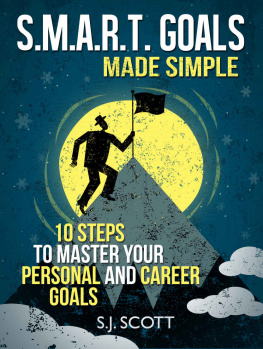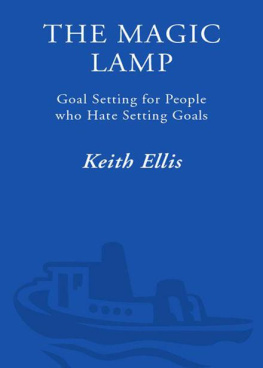About the Author
Brian Mayne is an inspirational speaker, author and trainer, presenting on an international stage. His core message of self-improvement through the practice of personal Response-Ability and purpose-led motivation have proven as effective and popular with the corporate world as with the many individuals who come to experience his public presentations.
Having travelled a path from gypsy origins and not being able to read or write properly, he became the owner of a nightclub business that crashed owing nearly 1,000,000, Brian developed and used his own simple techniques to transform himself, and rebuild his life. Now, as chairman of LIFT International, Brian has been working in the field of personal development and corporate training for the past eleven years and is becoming one of the leading lights in the world of self-improvement.
For my father, a man who epitomized
the essence of Positive Thinking, Vision, and Goals.
In the words of Clarence Budinton Kelland:
My father did not tell me how to live.
He lived, and let me watch him do it.
BRIAN MAYNES
Goal
mapping
THE PRACTICAL WORKBOOK
How to Turn Your Dreams
into Realities

Contents
Are you in earnest, seek this very minute.
Whatever you can do, or dream you can, begin it.
Boldness has genius, power and magic in it.
Just begin and the mind grows heated.
Continue and the task will be completed.
FAUST
Acknowledgements
I would like to thank all those who have helped me on my path over the years, both the teachers and the students, whose names are too numerous to mention, but in particular a special thank you to my mother for her loving support through some of the darkest days of my life.
Preface
The information contained within these pages has helped thousands of people to improve their lives and achieve their dreams; but perhaps one of the most amazing things about this book is that Ive managed to write it at all. You see, until the age of twenty-nine I couldnt read or write properly. Then through a bizarre set of circumstances I discovered something that totally changed every aspect of my life.
Allow me to share my story with you. I was born into a travelling funfair family and grew up having homes in three different locations each year: one was on the Isle of Wight where my father operated his summer business, one was the caravan that we travelled around in with the fairs, and the third was near Heathrow Airport where wed park the caravan for the winter.
With these three different homes came three different sets of friends, three different outlooks on life, at least two (and sometimes three) different schools. The timing of our moves meant that I often turned up at a new school in the middle of mock exams. The teachers generally thought it unfair that I should sit the tests having missed the course-work and, because I would be staying only a few months before moving on again, I would invariably find myself sitting in a temporary class: normally metalwork or woodwork. I often had as many as fifteen periods of metalwork or woodwork a week and became quite good at these things, but I didnt progress in other areas such as reading, writing and arithmetic. I have dyslexia and found spelling particularly difficult. Some teachers made a real effort and my parents paid for private lessons, but I just couldnt get the hang of it.
By the age of fourteen Id fallen way behind the other kids and, after pestering my father for some time, he allowed me to leave school. In those days it was the norm for children from fairground families to leave school early and the general attitude was: If you can read and write a little, and if you know how many beans make five, thats good enough. It was time to learn about life.
I thought working full time with my father instead of going to school was great, and in some ways it was, but it was also pretty stupid. There is a saying that goes: If you dont use it, you lose it. I didnt have much ability to read and write in the first place; once I left school and stopped exercising what little skill I had, I lost it completely. By the age of eighteen my ability to read and write was so poor that I couldnt fill out forms, send a postcard, or even write a cheque without help.
However, I was determined that none of this would hold me back in life, and I sought to build on my fathers success by expanding the family business. At nineteen I became one of the youngest licensees in the country when I opened a disco. With my brother Georges help I built the business, became really successful, and stayed in the club business for twelve years.
Then, in the early 1990s, things changed dramatically. The disco scene gave way to the rave culture, the British economy went into recession, and I made some bad business decisions. In a very short space of time I lost everything: my business, my home, most of my possessions, and finally my marriage fell apart.
I moved back into in my parents house, signed on with social security, and the family business went into receivership with debts of nearly 1 million. I found this very hard to deal with and fell into a state of depression. There didnt seem much chance of getting back on my feet. The whole family had been left penniless and the threat of eviction hung over my parents heads as it seemed their home would be repossessed. I had no formal qualifications and no real work experience, so there was nothing of substance that I could put on a CV.
Looking back, I now consider that period as a time of good fortune. In an effort to make some extra money I joined a sales organization; there I met a man who helped me to change my life. His name was Mike Rosewarne and he was a teacher of personal development. His message was simple: If you think you can, you can, if you think you cant you cant and either way youre right.
Id heard the saying several times before, as I expect you have. Its an old truth. But this time I heard it when I was looking for some answers and I listened with an open mind. I felt deeply inspired and uplifted by the notion that I could somehow improve my life through thinking differently. The biggest difference was that Mike put some scientific substance behind the statement that made a lot of sense and gave it real power.
I learned that everyone has billions of brain cells with arms called dendrites. Each of the dendrites is separated by a slight gap known as the synaptic gap. When you have a thought you spark an impulse in the centre (the nucleus) of the brain cell that travels along each of the dendrites, seeking to make connection with other dendrites, so that the thought spreads outwards to form a pattern of understanding, or train of thought.
If your thought is positive whether to do with your self, your life, or situation the positive impulse triggers the release of a chemical called serotonin from the end of the dendrite arm. Serotonin is the chemical that gives you the feeling of happiness and well-being; it also acts as a conductor and bridges the synaptic gap, allowing your thought to continue on its journey.
If however the thought you have is negative, it triggers the release of a chemical called cortisone instead, which prompts feelings of sadness and depression. It also works as an insulator, effectively blocking or limiting the free-flow of thoughts and ideas.
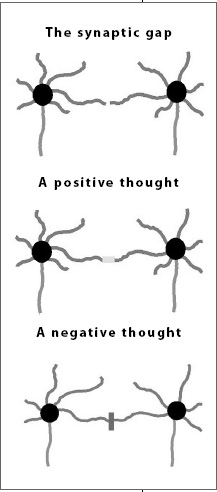
Next page
